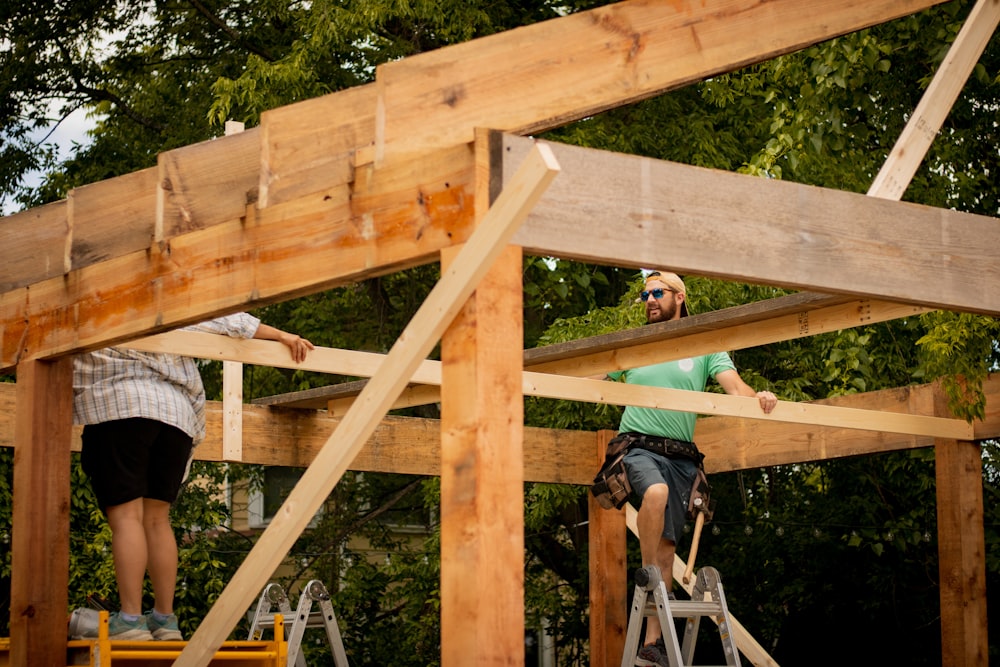Become a Roofing Contractor in the USA: Your Ultimate Guide
Discover the essential steps to become a roofing contractor in the USA, from obtaining your license to starting your own business. Learn about the training, experience, and certifications needed to succeed in the roofing industry.

Introduction
The roofing industry in the United States presents a significant opportunity for those looking to start a career or establish a business in this field. With the constant demand for roof repairs, replacements, and maintenance, the potential for growth and profitability is substantial. This guide aims to provide an in-depth look into becoming a roofing contractor in the USA, focusing on the importance of proper training, certification, and the steps required to launch a successful roofing business.
Understanding the Role of a Roofing Contractor
Roofing contractors play a crucial role in maintaining and enhancing the structural integrity of buildings. They are responsible for installing, repairing, and replacing roofs, ensuring homes and buildings are protected from the elements.
The market for roofing services is robust, with potential earnings reflecting the skill and effort invested. Success in this field requires a combination of technical knowledge, physical endurance, and customer service skills.
Step-by-Step Guide to Becoming a Roofing Contractor
Educational Requirements
The journey into the roofing industry often begins with a high school diploma or its equivalent, laying the foundation for a successful career.
While not strictly required, pursuing further education in related fields can significantly enhance your prospects. Courses in mathematics and business provide essential skills for managing projects and finances, while vocational training in roofing or construction offers practical knowledge and technical skills crucial for the trade.
Community colleges, vocational schools, and trade associations frequently offer relevant programs that cover materials, safety procedures, and building codes, equipping aspiring roofers with the knowledge needed for the field.

Gain Hands-on Experience
There's no substitute for practical experience in the roofing industry. Apprenticeships and on-the-job training are invaluable, offering a direct path to mastering the craft.
Many roofing contractors begin their careers by working under the guidance of experienced professionals, learning the nuances of installation, repair, and replacement of various roofing materials.
This period is crucial for developing the physical skills required for the job, such as balance, strength, and precision, as well as soft skills like customer service and project management. Engaging in hands-on work allows aspiring contractors to understand the complexities and challenges of roofing work firsthand.
Licensing Requirements
Obtaining a roofing contractor license is a critical step that varies widely across the USA, with each state setting its own requirements.
Typically, the licensing process includes passing a comprehensive exam that tests knowledge of business practices, roofing techniques, and local building codes. Prospective contractors must also demonstrate financial stability, often requiring a background check and proof of insurance.
The specifics of the licensing process can usually be found on state websites or through professional roofing associations, providing a clear pathway to meeting all legal criteria for practice.

Certification and Continuing Education
Earning certifications from recognized industry bodies, such as the National Roofing Contractors Association (NRCA), can significantly bolster a contractor's reputation and expertise.
These certifications, while not mandatory, signal a commitment to quality and professionalism, setting certified contractors apart in a competitive market. Additionally, the roofing industry is constantly evolving with new materials, techniques, and regulations.
As such, engaging in continuing education is vital for staying current with industry standards and technologies, ensuring that contractors can offer the best solutions to their clients.
Starting Your Roofing Business
Launching a roofing business requires meticulous planning and consideration. Understanding the legal requirements is just the beginning; a comprehensive business plan should address financing, equipment procurement, staffing, and operations management.
Initial investments typically cover tools, vehicles, and marketing efforts to establish a presence in the market. Successful business owners also emphasize the importance of a strong operational strategy, including job scheduling, customer relations, and quality control, to ensure long-term viability and profitability.
Insurance and Liability Considerations
Insurance coverage is indispensable in the roofing industry, safeguarding against accidents, damages, and other liabilities.
A well-structured insurance policy, including general liability and workers' compensation, protects the business owner, employees, and clients, mitigating financial risks associated with roofing projects.
Contractors should consult with insurance professionals to tailor their coverage to the specific needs and risks of their operations, ensuring comprehensive protection.
Marketing Your Roofing Business
Effective marketing strategies are crucial for attracting and retaining clients. Establishing a strong online presence through a professional website, search engine optimization (SEO) tailored for roofing contractors, and active social media engagement can significantly increase visibility.
Content marketing, customer testimonials, and before-and-after project galleries showcase the quality of work and build trust with potential clients. Additionally, local advertising, community involvement, and word-of-mouth referrals remain powerful tools for growing a roofing business.
Networking and Professional Growth
Building a network within the roofing and broader construction industry can lead to opportunities for business growth, learning, and collaboration.
Joining professional organizations, such as the NRCA, and attending trade shows and seminars facilitate connections with suppliers, peers, and potential clients. Networking events are invaluable for staying informed about industry trends, emerging technologies, and business strategies, contributing to a contractor's professional development and success in the field.
By following these detailed steps, aspiring roofing contractors can navigate the path from education to professional practice, ensuring a solid foundation for a successful career in the roofing industry.
Common Challenges and Solutions
Challenge: Stiff Competition
The roofing industry is highly competitive, with many contractors vying for the same projects.
Solution: Differentiate your business by specializing in niche areas, such as eco-friendly roofing solutions or advanced technological installations like solar roofs. Focusing on exceptional customer service and building a strong local reputation through positive reviews and word-of-mouth can also set you apart.

Challenge: Customer Acquisition
Finding and retaining customers is a crucial challenge.
Solution: Invest in a strong digital marketing strategy, including a user-friendly website, SEO, and active social media presence to engage with potential customers. Offering promotions, referral bonuses, and ensuring your business is listed on local directories can also enhance visibility.
Challenge: Managing Business Operations
Handling the day-to-day operations of a roofing business, including scheduling, inventory management, and customer service, can be overwhelming.
Solution: Adopting modern business management software can streamline operations, improve scheduling efficiency, and keep track of inventory and customer communications. This allows more time to focus on growth and service quality.
Challenge: Keeping Up with Industry Standards and Technologies
The roofing industry is continuously evolving, making it a challenge to stay current.
Solution: Continuous education and training are paramount. Attend industry workshops, webinars, and trade shows. Certifications from reputable organizations can also enhance your knowledge and credibility.
Success Stories and Case Studies
Success Story: Eco-Friendly Roofing Solutions
Brian Moore, a contractor who launched an eco-friendly roofing company in California, stands out by offering sustainable roofing solutions. By focusing on green materials and energy-efficient installations, his business has seen significant growth, catering to the increasing demand for environmentally friendly building practices.
Case Study: Utilizing Technology for Growth
A Midwest roofing company leveraged drone technology for roof inspections, significantly reducing the time and increasing safety for assessments. This innovative approach not only improved efficiency but also attracted customers interested in the latest roofing technology, showcasing how embracing new tools can lead to business expansion.
Success Story: Emphasizing Customer Service
Rick's roofing business in Florida attributes its success to exceptional customer service. By ensuring clear communication, transparency in pricing, and follow-up services, Jane has built a loyal customer base that frequently refers her business to others, demonstrating the power of trust and reliability in the roofing industry.
Conclusion
Embarking on a career as a roofing contractor in the USA offers a pathway to a rewarding profession that combines skill, dedication, and the opportunity for entrepreneurship. The journey involves overcoming challenges, from navigating competitive landscapes to mastering the intricacies of business management. However, through continuous learning, technological adoption, and a focus on customer service, aspiring contractors can achieve success.
The key to thriving in this dynamic industry lies in differentiating your services, whether through specialization, adopting new technologies, or simply excelling in customer satisfaction. As shown in the success stories and case studies, individual commitment to quality, innovation, and sustainability can lead to remarkable achievements.
In conclusion, becoming a successful roofing contractor requires more than just technical skills; it demands a strategic approach to business, an ongoing commitment to improvement, and a keen understanding of customer needs. By embracing these principles and learning from the experiences of those who have paved the way, new contractors can build sustainable businesses that stand the test of time in the ever-evolving roofing industry.

FAQs
What are the first steps to becoming a roofing contractor?
To become a roofing contractor, begin with gaining a solid educational foundation, either through a high school diploma or equivalent, followed by targeted training in roofing through vocational programs or apprenticeships. Research your state's licensing requirements, as you'll likely need to obtain a specific license to legally operate. Gain hands-on experience through work with established contractors to learn the trade and understand the business aspects of roofing operations.
Do I need a license to start a roofing business in every state?
Yes, most states require roofing contractors to have a license to operate legally. The requirements for obtaining a license vary significantly from state to state, including exams, proof of experience, and financial stability. It's essential to check with your state's licensing board or Department of Professional Regulation to understand the specific requirements in your area.
How long does it take to become a certified roofing contractor?
The time it takes to become a certified roofing contractor can vary widely. After completing any necessary educational requirements, you might spend 1-3 years gaining hands-on experience. Obtaining certification from a reputable organization, such as the National Roofing Contractors Association (NRCA), may require additional exams and proof of experience. Overall, you could be looking at anywhere from 2 to 5 years to become fully certified, depending on the path you choose and the certification level you wish to achieve.
What are the ongoing costs involved in running a roofing business?
Ongoing costs for a roofing business include insurance premiums (liability and workers' compensation), equipment maintenance and replacement, supplies and materials, marketing and advertising expenses, and employee salaries. Don't forget about the costs associated with any rented or owned business space. Effective management and strategic planning can help control these costs and maintain profitability.
How can I differentiate my roofing business from competitors?
Differentiate your roofing business by specializing in niche markets, such as sustainable roofing solutions or high-tech roofing systems. Providing exceptional customer service, offering warranties or guarantees beyond the industry standard, and showcasing your expertise through educational content can also set you apart. Investing in professional branding and a strong online presence will help you stand out in the digital space.
What are the best marketing strategies for a new roofing business?
Effective marketing strategies for a new roofing business include creating a professional website optimized for search engines (SEO), engaging with your community on social media platforms, and leveraging local SEO tactics to appear in local search results. Consider content marketing to establish your authority in the industry, and don't underestimate the power of word-of-mouth referrals—encourage satisfied customers to share their experiences. Networking with local builders, real estate agents, and participating in community events can also increase visibility and lead to new opportunities.
How do I handle customer disputes or negative reviews?
Handling customer disputes professionally and proactively is crucial for maintaining your business's reputation. Address any complaints promptly, offering solutions that demonstrate your commitment to customer satisfaction. For negative reviews, respond courteously online, acknowledging the issue and how you plan to resolve it or improve services in the future. This approach not only helps resolve individual concerns but also shows potential customers your dedication to quality service.
Can I operate a roofing business without a physical office?
Yes, it's possible to operate a roofing business without a physical office, especially in the initial stages. Many contractors manage their operations remotely or from a home office, investing in mobile tools and technology to stay connected with clients and manage projects efficiently. However, as your business grows, you may find that a physical office space is beneficial for meetings, storing equipment, or as a base for operations.
By addressing these FAQs, aspiring roofing contractors can gain a clearer understanding of the steps, requirements, and strategies needed to launch and sustain a successful roofing business in the competitive industry landscape.
